Low levels of ferritin presenting on a blood test report may be a factor for some but not all females, which leads to an individual’s hair loss or fragile, brittle, and limp tresses. Iron is essential for healthy hair cell development which is one of the fastest dividing cells in the body. Iron is also essential for the growth phase to function to its full potential so that hair grows strong and doesn’t fall out prematurely. On some blood test reports the iron store level is identified as serum ferritin. Levels outside of the optimal range are a concern to Trichologists, as are all the other components in the blood that associate with the iron profile.
Balanced Iron levels are essential in order to prevent anemia and for both the production of energy and oxygen circulation around the body. When your body is short of oxygen vital organs receive whatever iron is available as a priority due to the body’s inbuilt desire to survive. To manage the depleted levels the body starts to recycle old red blood cells to use the iron found in the cells to provide the body with the iron it requires. There are several stages of severity for iron deficiency, the least severe level probably won’t show up on a blood test.
One of the safest ways to maintain and balance iron levels is by eating a healthy diet that contains iron-rich foods. There are two kinds of iron that can be digested as part of a daily diet – Heme iron, and Non-Heme iron. Heme iron is from animal foods, it’s a complete protein, and more easily absorbed by mankind, Non-Heme iron is found in plant-based foods. More than 95% of functional iron in the human body is Heme iron. Therefore, vegetarians and vegans may need to aim for a higher daily intake of iron and pay attention to which nutrients in foods impair absorption eg. calcium, and which are believed to boost iron absorption e.g vitamin C.
See the below table for examples of animal and plant foods with a guide on iron content for each:
RDA Foods High in Iron
|
Adults: Male – 8 mg Female Pre-menopause 14mg Post-menopause 8mg |
Mg of iron per serving | Percent of 14mg daily value (for women) per serving |
| Ready-to-eat cereal, 100% iron-fortified, ½ cup | 12 mg | 85.5% |
| Oatmeal, instant, fortified, prepared with water, 1 packet | 11 mg | 78.5% |
| Soybeans, mature, boiled, ½ cup | 4.4 mg | 31% |
| Turkey, dark meat, roasted, 6 ounces | 4 mg | 28% |
| Lentils, boiled, ½ cup | 3.3 mg | 23% |
| Tofu, raw, firm, ½ cup | 3.4 mg | 24% |
| Beef, top sirloin, steak, lean only, broiled, 6 ounces | 3.2 mg | 22% |
| Spinach, fresh, boiled, drained, ½ cup | 3.2 mg | 22% |
| Beans, kidney, mature, boiled, ½ cup | 2.6 mg | 18% |
| Chicken, light meat, meat only, 6 ounces | 1.8 mg | 12% |
| Tomatoes, red, ripe, canned, stewed, ½ cup | 1.7 mg | 12% |
| Pork, loin chop, broiled, 6 ounces | 1.4 mg | 10% |
| Mushrooms, cooked, boiled, drained, without salt, ½ cup | 1.4 mg | 10% |
| Tuna, light, canned in water, 3 ounces | 1.3 mg | 9% |
| Seeds, pumpkin and squash seed kernels, roasted, 36 seeds | 1.1 mg | 7% |
| Raisins, seedless, packed, ¼ cup | 0.8 mg | 5% |
| Molasses, 1 tablespoon | 0.9 mg | 6% |
| Tuna, fresh, yellowfin, cooked, dry heat, 3 ounces | 0.8 mg | 5% |
| Peas, green, frozen, cooked, boiled, drained, without salt, | 0.6 mg | 4% |
| Dates, deglet noor, ¼ cup | 0.5 mg | 3% |
| Shrimp, mixed species, cooked, moist heat, 4 large | 0.3 mg | 2% |
| Halibut, cooked, dry heat, 6 ounces | 0.4 mg | 2.5% |
Other foods may deplete the body of iron, anything with high tannin content: tea or coffee, carbonated drinks, as well as cow’s milk, chocolate, and rhubarb. For folk prone to iron deficiency, large amounts of these drinks and foods can actually block cells from absorbing a full dose of iron.
The main reason for this blog is to let you know if you’re suffering from hair loss or are concerned that your hair is not as healthy as you think it should be, there’s a possibility that a nutritional imbalance or underlying health concern may be contributing to, or causing your hair worries. A Trichologist can help you find out what is causing your hair concerns and help you onto a healthy hair journey.

Leave a Reply